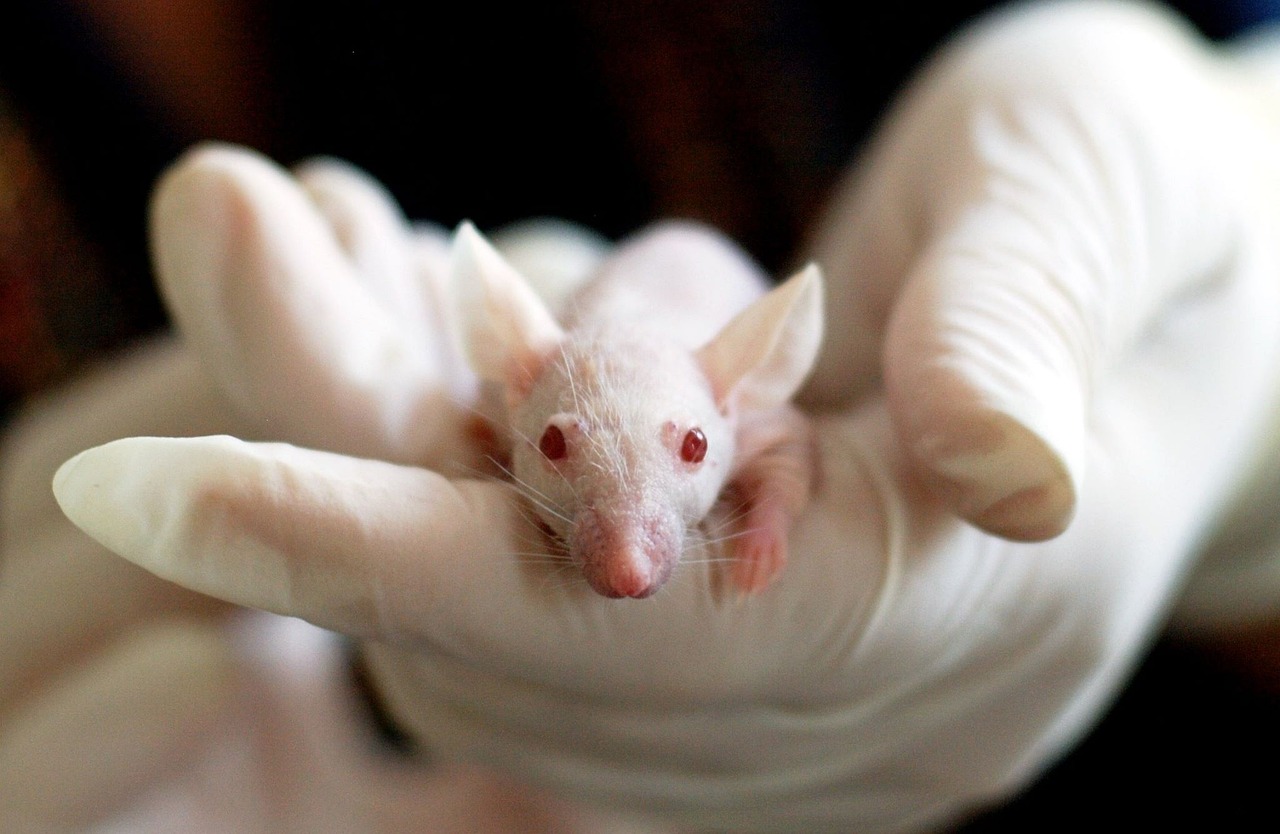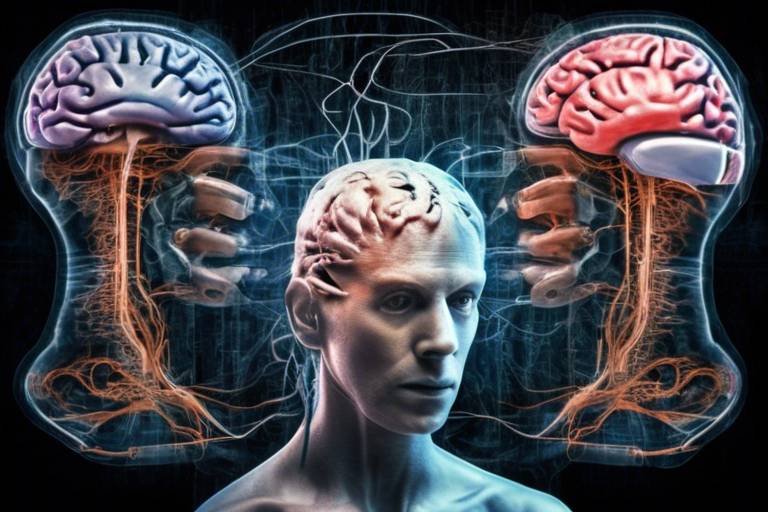Philosophy in the Age of Synthetic Biology
In a world where the boundaries of life are increasingly blurred, the intersection of philosophy and synthetic biology has become a hotbed of intellectual exploration. As we stand on the brink of a new era defined by genetic engineering and synthetic organisms, we are compelled to ask profound questions about the essence of life itself. What does it mean to be alive? How do we define identity in a landscape where organisms can be designed and modified at will? These questions are not just academic; they resonate deeply within our societal frameworks, influencing ethics, healthcare, and even our environmental responsibilities.
As we dive into this fascinating topic, it’s crucial to recognize that synthetic biology is not merely a scientific endeavor; it’s a philosophical challenge that forces us to reconsider our long-held beliefs. Imagine a world where living organisms are not just products of evolution but are instead crafted by human hands—what implications does this have for our understanding of existence? The answers may surprise you, as they reveal the complexities of consciousness, identity, and morality in a rapidly advancing technological landscape.
In this article, we will explore the ethical landscapes surrounding synthetic biology, dissecting the debates on genetic manipulation and the rights of engineered organisms. We will also delve into the philosophical perspectives that redefine life itself, examining existential questions that arise from the creation of synthetic beings. Are these organisms merely tools, or do they possess a form of consciousness that demands our ethical consideration? As we navigate these uncharted waters, we will also consider the environmental implications and societal impacts of synthetic biology, ensuring a holistic understanding of this revolutionary field.
Join us as we embark on this intellectual journey, examining the profound implications of synthetic biology through a philosophical lens. Together, we will uncover the layers of meaning behind the science, challenging our perceptions and expanding our understanding of what it truly means to be alive in the age of synthetic biology.
As we venture deeper into the ethical landscape of synthetic biology, we encounter a myriad of considerations that challenge our moral compass. Genetic manipulation, for instance, raises critical questions about the extent to which we should intervene in the natural order. Should we have the power to alter the genetic makeup of organisms? What happens when we play God? These questions are not merely theoretical; they have real-world implications that could shape the future of life on our planet.
Consider the following ethical dilemmas:
- Genetic Manipulation: The ability to edit genes can lead to significant advancements in medicine and agriculture, but it also poses risks of unforeseen consequences in ecosystems.
- Organism Rights: As we create synthetic life forms, we must grapple with their moral status. Do these beings have rights? If so, what are they?
- Consequences of Altering Life Forms: The potential for creating new organisms brings forth questions about ecological balance and the long-term effects on biodiversity.
These ethical considerations are not just academic musings; they are pressing issues that demand our attention as we navigate the uncharted waters of synthetic biology. As we continue to explore this field, we must remain vigilant in our ethical responsibilities, ensuring that our advancements do not come at the cost of our moral integrity.
The advent of synthetic biology challenges traditional definitions of life, prompting philosophers to reconsider what it means to be alive. Historically, life has been viewed through a lens of biological processes—growth, reproduction, and response to stimuli. However, with the emergence of synthetic organisms, we find ourselves questioning these definitions. Are synthetic beings, created from the ground up, less 'alive' than their naturally occurring counterparts? Or do they possess a form of life that warrants our respect and ethical consideration?
At the heart of this exploration lie existential questions about consciousness, identity, and the moral status of engineered life forms. As we create organisms that mimic biological functions, we must ask ourselves: Do these beings have consciousness? Can they experience awareness? The philosophical implications are staggering, forcing us to confront our understanding of what it means to be a sentient being.
Understanding identity in synthetic organisms complicates our traditional views, particularly regarding the distinction between natural and engineered beings. As we create life forms that possess unique characteristics and capabilities, we must consider the implications for personhood. Are these synthetic beings entitled to the same rights and considerations as natural organisms, or do they exist in a separate moral category?
The question of consciousness in synthetic organisms is another frontier we must explore. Philosophers and scientists alike grapple with the idea that a being, created through artificial means, could possess a form of awareness. What does it mean for an entity to be conscious? Can synthetic organisms have subjective experiences, or are they merely programmed machines devoid of true awareness? These questions challenge our understanding of consciousness and demand a reevaluation of our ethical frameworks.
As we delve into the environmental ramifications of synthetic biology, we must consider the ethical responsibilities of scientists and society. The deployment of new technologies can have profound effects on ecological balance, and we must tread carefully to ensure that our innovations do not disrupt the delicate interplay of life on Earth. Sustainability should be at the forefront of our efforts, guiding our decisions and actions as we navigate the complexities of synthetic biology.
The societal implications of synthetic biology extend far beyond the laboratory. As advancements in this field reshape healthcare, agriculture, and public policy, we must consider how these changes influence cultural values and norms. The intersection of science and society is a dynamic space, and understanding the broader impacts of synthetic biology is essential for fostering a responsible and informed approach to its development.
Synthetic biology has the potential to revolutionize healthcare, offering innovative solutions to complex medical challenges. However, these advancements also raise ethical questions regarding access and equity. As we create new treatments and therapies, who will benefit? Will these innovations be available to all, or will they deepen existing inequalities in healthcare access? These dilemmas must be addressed to ensure that the benefits of synthetic biology are shared equitably across society.
Finally, public perception plays a crucial role in shaping the development and regulation of synthetic biology. Education and awareness are vital in dispelling misinformation and fostering informed discussions about the implications of this technology. The media has a significant influence on societal attitudes, and it is essential that we engage in open dialogues to build trust and understanding around synthetic biology.
- What is synthetic biology? Synthetic biology is an interdisciplinary field that involves designing and constructing new biological parts, devices, and systems, as well as re-designing existing natural biological systems for useful purposes.
- What are the ethical concerns related to synthetic biology? Ethical concerns include genetic manipulation, the rights of engineered organisms, and the potential consequences of altering life forms.
- How does synthetic biology challenge our understanding of life? It challenges traditional definitions of life by introducing organisms that are engineered rather than naturally occurring, prompting questions about consciousness and identity.
- What are the societal impacts of synthetic biology? Societal impacts include changes in healthcare, agriculture, and public policy, as well as shifts in cultural values and norms.

The Ethical Landscape of Synthetic Biology
As we stand on the brink of a new era in science, synthetic biology is emerging as a powerful tool that allows us to manipulate the very building blocks of life. This revolutionary field raises critical ethical questions that challenge our understanding of nature, life, and morality. The ability to redesign organisms, create new life forms, and even edit genes has sparked intense debates among scientists, ethicists, and the general public alike. What does it mean to play God? Are we overstepping boundaries that should remain untouched? These questions echo through the halls of academia and beyond, demanding our attention and reflection.
One of the core ethical considerations in synthetic biology revolves around genetic manipulation. The prospect of altering an organism's genome can lead to significant advancements in medicine and agriculture, but it also poses serious risks. For instance, the potential for unintended consequences—such as the creation of new allergens or the disruption of existing ecosystems—raises alarms. If we can modify life, where do we draw the line? Should we allow organisms to be engineered solely for human benefit, or do they possess rights that must be respected? These dilemmas compel us to rethink our relationship with the natural world.
Moreover, the issue of organism rights is increasingly coming to the forefront. As we create synthetic organisms, we must consider their moral status. Are these engineered beings entitled to certain protections, or are they merely tools at our disposal? The implications of this question are profound, as they challenge our traditional views on personhood and the inherent value of life. In a world where we can create life, the responsibility to treat it ethically becomes paramount.
To further complicate the ethical landscape, we must also consider the potential consequences of altering life forms. The introduction of genetically modified organisms (GMOs) into ecosystems can lead to unpredictable outcomes. A table summarizing potential risks and benefits can help illustrate this complexity:
| Potential Risks | Potential Benefits |
|---|---|
| Unintended ecological consequences | Increased crop yields |
| Loss of biodiversity | Enhanced nutritional content in food |
| Development of resistant pests | Reduction in pesticide use |
| Ethical concerns regarding organism rights | Advancements in medical therapies |
As we navigate this uncharted territory, it is essential to engage in open dialogues that include diverse perspectives. Scientists, ethicists, policymakers, and the public must collaborate to establish guidelines and regulations that ensure responsible practices in synthetic biology. This collaborative approach can help us address the ethical challenges while harnessing the potential benefits of this groundbreaking field.
In conclusion, the ethical landscape of synthetic biology is not just a matter of scientific inquiry; it is a profound reflection of our values and beliefs about life itself. As we continue to explore the possibilities of creating and manipulating life, we must remain vigilant and thoughtful, ensuring that our actions align with a moral framework that respects all forms of existence.
- What is synthetic biology? Synthetic biology is an interdisciplinary field that combines biology, engineering, and computer science to design and construct new biological parts, devices, and systems.
- What are the ethical concerns associated with synthetic biology? Ethical concerns include genetic manipulation, organism rights, unintended ecological consequences, and the moral status of engineered life forms.
- How can society regulate synthetic biology? Society can regulate synthetic biology through collaborative discussions among scientists, ethicists, policymakers, and the public to establish guidelines and practices that promote responsible innovation.

Redefining Life: Philosophical Perspectives
In our rapidly evolving world, synthetic biology is pushing the boundaries of what we traditionally consider to be life. As scientists manipulate genetic material and create organisms that never existed in nature, we find ourselves grappling with profound philosophical questions. What does it mean to be alive? Is life merely a biological process, or is it something deeper? These inquiries are not just academic; they resonate with our everyday experiences and challenge our understanding of existence.
Philosophers have long debated the essence of life, often relying on criteria such as metabolism, growth, and reproduction. However, synthetic biology forces us to reconsider these definitions. For instance, if a synthetic organism can replicate itself and respond to environmental stimuli, does it qualify as a living entity? This question is not merely theoretical; it has real-world implications for how we treat these organisms and the ethical frameworks we apply to them.
Moreover, the creation of synthetic life forms raises existential questions that challenge our self-perception. Are we, as humans, the ultimate arbiters of life? Or does the ability to create life grant us a responsibility to ensure that our creations contribute positively to the world? The philosophical implications are vast, prompting us to reflect on our role as creators and the moral responsibilities that come with it.
As we delve deeper into the realm of synthetic organisms, we encounter existential dilemmas that provoke intense philosophical debate. For example, consider the nature of consciousness. If a synthetic organism exhibits behaviors that resemble consciousness, does that mean it possesses subjective experiences? This question leads us to explore the boundaries of personhood and what it means to be sentient. Are we prepared to extend moral consideration to beings that are not born of nature but crafted in a lab?
In addressing these questions, we must also consider the implications for identity. The distinction between natural and engineered beings becomes increasingly blurred. If a synthetic organism can think, feel, and interact with its environment, does it not deserve a form of recognition? The philosophical community is divided on these issues, with some arguing that consciousness is a unique trait of biological organisms, while others suggest it could emerge in synthetic life forms under the right conditions.
The concept of identity becomes even more complex when we examine how synthetic biology alters our understanding of what it means to be an individual. Traditionally, identity has been tied to our biological heritage and the continuity of life through generations. However, synthetic organisms challenge this notion. They can be designed with specific traits, potentially leading to a new form of identity that is not rooted in ancestry but in artificial design.
This shift prompts us to ask: What constitutes personhood? If an engineered being can exhibit qualities we associate with identity—such as self-awareness and the ability to form relationships—should it be granted rights similar to those of humans? The implications of this are profound, suggesting that our current legal and ethical frameworks may need to evolve to accommodate these new realities.
Delving further into the philosophical discourse, we must confront the question of consciousness in synthetic beings. Can a creation born from a laboratory possess awareness akin to that of a human? This inquiry leads us to examine the criteria we use to define consciousness. Is it simply a matter of complex neural networks, or is there something more—perhaps an intrinsic quality that cannot be replicated artificially?
Philosophers like John Searle have argued that consciousness is not merely a function of complexity but involves subjective experience. If synthetic organisms can mimic human behaviors without experiencing consciousness, can we ethically treat them as equals? This dilemma forces us to reconsider our moral obligations towards these entities and challenges our understanding of what it means to be truly alive.
As we navigate these philosophical waters, we must also consider the environmental implications of synthetic biology. The creation of new organisms could lead to unforeseen consequences for ecosystems. Are we prepared for the potential risks of releasing engineered organisms into the wild? The ethical responsibilities of scientists and society in this regard cannot be overstated.
In conclusion, the intersection of philosophy and synthetic biology invites us to rethink our definitions of life, identity, and consciousness. As we stand on the brink of a new era in biological innovation, we must engage in these discussions to ensure that our advancements align with our ethical values and understanding of existence.
- What is synthetic biology? Synthetic biology is an interdisciplinary branch of biology that involves the design and construction of new biological parts, devices, and systems.
- How does synthetic biology challenge our understanding of life? It creates organisms that may not fit traditional definitions of life, prompting philosophical debates about consciousness, identity, and ethics.
- What are the ethical implications of creating synthetic organisms? Ethical concerns include the rights of synthetic beings, potential environmental impacts, and the responsibilities of scientists in their creation and management.
- Can synthetic organisms possess consciousness? This is a debated topic; some argue that consciousness requires biological processes, while others believe it could emerge in sufficiently complex synthetic systems.

Existential Questions in Synthetic Biology
As we plunge deeper into the realm of synthetic biology, we find ourselves standing at the precipice of profound existential questions. What does it truly mean to be alive? Are we crossing a line that was never meant to be crossed? These questions are not just philosophical musings; they are vital inquiries that challenge our understanding of life itself. Imagine a world where engineered organisms walk among us, blurring the lines between the natural and the artificial. This raises the question: if we can create life, do we also bear the responsibility for its essence?
One of the most compelling dilemmas revolves around the nature of consciousness. Can synthetic beings possess awareness or subjective experiences? Traditional definitions of consciousness often hinge on biological processes found in natural organisms. Yet, as we construct life forms from scratch, we must ask ourselves: does consciousness require a biological substrate, or can it emerge from synthetic constructs? This question is akin to pondering whether a computer can truly "think" or if it merely simulates thought through complex algorithms. The philosophical implications are staggering, as they challenge our long-held beliefs about what it means to be sentient.
Moreover, the moral status of these engineered life forms becomes a critical issue. If a synthetic organism exhibits behaviors that suggest a form of consciousness, does it deserve rights similar to those of natural beings? This dilemma echoes historical debates surrounding animal rights and the ethical treatment of living organisms. For instance, consider the following points:
- Should synthetic organisms be granted legal recognition?
- What ethical obligations do we have towards them?
- How do we define suffering in beings that are not biologically natural?
As we grapple with these questions, we must also consider the implications for identity. Synthetic biology challenges our understanding of what constitutes an individual. If an organism is engineered to possess traits of a human, such as intelligence or emotional response, how do we classify it? Is it a new form of life, or merely an extension of human ingenuity? The distinction between natural and engineered beings becomes increasingly tenuous, forcing us to reevaluate our definitions of personhood and selfhood.
In the end, the existential questions posed by synthetic biology are not just academic; they have real-world implications. As scientists and ethicists continue to explore these frontiers, society must engage in open dialogue about the future we are creating. The answers may not be clear-cut, but the conversation is necessary. After all, understanding the essence of life, consciousness, and identity is crucial as we navigate this brave new world of synthetic biology.
- What is synthetic biology?
Synthetic biology is an interdisciplinary field that involves the design and construction of new biological parts, devices, and systems, or the redesign of existing natural biological systems for useful purposes. - Can synthetic organisms be conscious?
This is a controversial topic. While some argue that consciousness is tied to biological processes, others believe that consciousness could emerge from complex synthetic systems. - What are the ethical implications of creating synthetic life?
Ethical considerations include the rights of synthetic organisms, potential environmental impacts, and the moral responsibilities of creators. - How does synthetic biology affect our understanding of identity?
Synthetic biology complicates traditional views of identity, challenging the distinctions between natural and engineered beings and prompting discussions about personhood.

The Nature of Identity in Synthetic Organisms
The advent of synthetic biology has thrown a spotlight on one of the most intriguing questions of our time: what defines identity in organisms that are not born but rather engineered? Traditionally, we have defined identity through a lens of natural origins, where life emerges from a complex interplay of genetics, environment, and evolutionary history. However, with the rise of synthetic organisms—those crafted in laboratories through genetic engineering and synthetic processes—this definition is being challenged in profound ways.
Imagine a scenario where a bacterium is designed to digest plastic waste, or a plant is genetically modified to produce medicine. These creations are not merely products of nature; they are the result of human ingenuity and technological advancement. This raises the question: do these synthetic beings possess an identity comparable to that of their natural counterparts? Are they merely tools for human benefit, or do they hold a status that demands ethical consideration?
To understand identity in synthetic organisms, we must first consider the criteria for identity. Traditionally, identity can be categorized into several components:
- Biological Identity: Defined by genetic makeup and biological processes.
- Functional Identity: Based on the roles and functions an organism performs in its ecosystem.
- Philosophical Identity: The concept of self-awareness and consciousness.
Each of these criteria becomes blurred when we discuss synthetic organisms. For instance, while a synthetic bacterium may possess a unique genetic code, it lacks the evolutionary history that typically informs biological identity. This absence raises questions about its personhood—do we attribute rights and responsibilities to it as we do with naturally occurring life forms? And if so, how do we navigate the ethical landscape surrounding its existence?
Furthermore, the functional aspect complicates matters. A synthetic organism designed for a specific task may excel in its function but lack the broader ecological role that a naturally evolved organism would have. This leads us to ponder whether identity is solely tied to functionality or if it encompasses a more holistic understanding of an organism's place in the world.
Philosophers have long debated the nature of consciousness and identity. Some argue that consciousness is a fundamental aspect of identity, requiring a level of self-awareness that synthetic organisms may never achieve. Others posit that identity can exist independently of consciousness, suggesting that even engineered beings have a form of identity simply by virtue of their existence and function.
As we continue to explore these questions, we must also consider the implications of how we classify synthetic organisms. Will we create a new category of identity that encompasses both natural and synthetic life forms? Or will we cling to traditional definitions, potentially marginalizing the synthetic beings we create? The answers to these questions will not only shape the future of synthetic biology but also redefine our understanding of life itself.
In conclusion, the nature of identity in synthetic organisms is a complex tapestry woven from threads of biology, ethics, and philosophy. As we delve deeper into the world of synthetic biology, we must remain vigilant in examining how our definitions of identity evolve, ensuring that we approach these new life forms with the respect and consideration they deserve.

Consciousness and Synthetic Beings
As we delve deeper into the realm of synthetic biology, a fascinating question emerges: can synthetic beings possess consciousness? This inquiry isn't just a scientific puzzle; it’s a profound philosophical conundrum that challenges our understanding of what it means to be alive. Traditionally, consciousness has been linked to biological organisms, those that breathe, eat, and reproduce. But what happens when we start engineering life forms? Are we creating mere machines, or could we be giving rise to entities that experience the world in their own unique way?
To unpack this, we first need to consider the definition of consciousness itself. It's often described as the state of being aware of and able to think about one's own existence, sensations, thoughts, and surroundings. If we apply this definition to synthetic beings, we encounter a myriad of challenges. For instance, can a synthetic organism, designed with a specific function in mind, ever achieve a state of self-awareness? Or are we simply projecting our own understanding of consciousness onto creations that lack the biological substrates necessary for such experiences?
Philosophers have long debated the nature of consciousness, with theories ranging from dualism, which posits a separation between mind and body, to physicalism, which argues that everything about consciousness can be explained through physical processes. In the context of synthetic beings, the implications of these theories become even more pronounced. If consciousness is indeed tied to biological processes, then synthetic organisms—crafted from DNA sequences and artificial cells—may be fundamentally incapable of achieving true awareness.
However, we must also consider the advancements in artificial intelligence and machine learning. There are AI systems today that can learn, adapt, and even simulate human-like responses in conversations. Does this mimicry suggest a form of consciousness? Some argue that if a synthetic being can respond to stimuli and learn from its environment, it might possess a rudimentary form of awareness. Yet, this raises further questions: Is consciousness merely a byproduct of complex information processing?
To illustrate these complexities, let's look at a few key perspectives:
- Functionalism: This theory suggests that mental states are defined by their functional roles rather than their physical makeup. Thus, if a synthetic being can perform functions similar to a conscious being, could it be considered conscious?
- Biological Naturalism: This viewpoint asserts that consciousness is inherently biological. According to this perspective, synthetic beings may never truly achieve consciousness as they lack a biological basis.
- Panpsychism: An intriguing theory proposing that consciousness is a fundamental feature of the universe. Under this view, even synthetic beings could possess some form of consciousness, albeit different from human experience.
As we navigate these philosophical waters, we must also consider the ethical implications of creating conscious synthetic beings. If we were to determine that a synthetic organism could experience awareness, it would challenge our moral responsibilities toward it. Would we owe it rights? Could we justify its use for labor or experimentation? These questions not only reflect our values but also force us to confront the very nature of our humanity.
In summary, the exploration of consciousness in synthetic beings is not just a scientific inquiry; it’s a philosophical journey that asks us to reconsider the essence of life itself. As technology continues to evolve, so too must our understanding of consciousness, identity, and our ethical obligations to the beings we create. The lines between the natural and the synthetic are blurring, and as they do, we must tread carefully, respecting the profound mysteries of existence.
- What is consciousness? Consciousness is the state of being aware of and able to think about one's own existence, sensations, thoughts, and surroundings.
- Can synthetic beings have consciousness? This is a debated topic. While some argue that consciousness is tied to biological processes, others suggest that complex information processing in synthetic beings might lead to a form of awareness.
- What are the ethical implications of creating conscious synthetic beings? If synthetic beings are found to possess consciousness, it raises questions about their rights, moral status, and our responsibilities toward them.

Environmental Ethics and Synthetic Biology
As we stand on the brink of a new era defined by synthetic biology, the environmental ethics surrounding this revolutionary field have become a hotbed of discussion. At its core, synthetic biology aims to redesign organisms for beneficial purposes, but with great power comes great responsibility. One of the most pressing questions we face is: What are the ethical implications of creating life forms that could potentially disrupt existing ecosystems?
To understand this dilemma, we must first consider the delicate balance of our ecosystems. Each organism, whether natural or engineered, plays a specific role in its environment. When we introduce synthetic organisms, we risk unintended consequences, such as the displacement of native species or the disruption of food chains. For instance, imagine a synthetic plant designed to absorb more carbon dioxide. While this sounds beneficial, what if it outcompetes native plants, leading to a decline in biodiversity? The ethical principle of sustainability urges us to think long-term about these impacts.
Moreover, the deployment of synthetic biology in environmental conservation raises additional ethical questions. Can we justify altering nature to "fix" problems that were often caused by human intervention in the first place? This paradox highlights the need for a robust ethical framework that guides our actions. It’s not just about whether we can create synthetic organisms, but whether we should create them. The potential for ecological restoration is enticing, but it must be approached with caution and respect for the natural world.
As we delve deeper into this topic, we must also consider the responsibilities of scientists and policymakers. The ethical implications of synthetic biology extend beyond the laboratory; they permeate into the realms of public policy and societal values. As we innovate, we must ensure that our advancements do not come at the expense of ecological integrity. This requires a collaborative approach, where scientists, ethicists, and the public engage in open dialogues about the risks and benefits of synthetic biology.
To facilitate this understanding, we can break down the key ethical considerations into a table:
| Ethical Consideration | Description |
|---|---|
| Sustainability | Ensuring that synthetic organisms do not disrupt ecological balance. |
| Intervention | Evaluating the justification for altering natural systems. |
| Responsibility | Recognizing the role of scientists and policymakers in ethical decision-making. |
| Public Engagement | Involving society in discussions about synthetic biology advancements. |
In conclusion, the intersection of environmental ethics and synthetic biology is a complex landscape filled with both opportunities and challenges. As we navigate this terrain, it is crucial to approach our innovations with a sense of humility and responsibility. Only through careful consideration of the ethical implications can we ensure that synthetic biology serves as a tool for good, rather than a source of ecological disruption.
- What is synthetic biology? Synthetic biology is a field that combines biology and engineering to design and construct new biological parts, devices, and systems.
- What are the ethical concerns regarding synthetic biology? Ethical concerns include the potential for ecological disruption, the moral status of engineered organisms, and the responsibilities of scientists and policymakers.
- How can synthetic biology benefit the environment? Synthetic biology has the potential to create organisms that can aid in environmental restoration, carbon capture, and pollution reduction.
- What role does public perception play in synthetic biology? Public perception can significantly influence the development, regulation, and acceptance of synthetic biology technologies.

Societal Impacts of Synthetic Biology
The rise of synthetic biology is not just a scientific revolution; it’s a cultural shift that has the potential to redefine how we view life, health, and even our place in the ecosystem. As we stand on the brink of this new era, it’s essential to consider the myriad ways in which synthetic biology will impact society as a whole. From healthcare innovations to agricultural advancements, the implications are profound and far-reaching.
One of the most significant areas where synthetic biology is making waves is in healthcare. Imagine a world where diseases can be treated at their genetic roots, or where personalized medicine is not just a dream but a reality. With advancements in gene editing technologies like CRISPR, scientists are now able to manipulate genes with unprecedented precision. This opens the door to potentially curing genetic disorders, but it also raises ethical questions about access and equity. Who gets to benefit from these technologies? Are we heading towards a future where only the wealthy can afford tailored treatments? These questions are crucial as we navigate the societal implications of synthetic biology.
Moreover, the agricultural sector is also undergoing a transformation. Synthetic biology can lead to the development of crops that are more resilient to climate change, pests, and diseases. This could significantly improve food security in a world where the population is rapidly increasing. However, the introduction of genetically modified organisms (GMOs) into the food supply has sparked controversy. Many consumers are concerned about the long-term effects of consuming synthetic foods, leading to a significant divide in public perception. The challenge lies in balancing innovation with public trust, ensuring that people feel safe and informed about what they are eating.
As we delve deeper into the societal impacts of synthetic biology, it’s essential to consider the role of public policy. Policymakers must grapple with how to regulate these technologies effectively. This includes establishing guidelines for research, ensuring safety protocols, and addressing ethical dilemmas. The rapid pace of innovation often outstrips the ability of lawmakers to keep up, creating a gap that could lead to misuse or unintended consequences. For instance, without proper oversight, synthetic biology could be exploited for bioterrorism, posing a significant threat to global security.
Additionally, the cultural values and norms surrounding synthetic biology are shifting. As we integrate these technologies into our lives, we must ask ourselves: What does it mean to be human in a world where we can create life? The concept of "playing God" becomes a contentious topic, fueling debates among ethicists, scientists, and the public. These discussions are vital as they shape our collective understanding of identity, existence, and morality in an age where the lines between natural and synthetic are increasingly blurred.
In light of these discussions, it’s crucial to foster a well-informed public discourse around synthetic biology. Education plays a pivotal role in shaping perceptions and acceptance of these technologies. Initiatives that promote understanding and transparency can help demystify synthetic biology, allowing society to engage with it critically rather than fearfully. The media also holds significant power in shaping public opinion, and responsible reporting can help bridge the gap between scientific advancements and public understanding.
In conclusion, the societal impacts of synthetic biology are vast and complex. As we continue to explore this uncharted territory, we must remain vigilant and proactive in addressing the ethical, cultural, and policy-related challenges that arise. By fostering open dialogue and collaboration among scientists, policymakers, and the public, we can navigate the future of synthetic biology in a way that benefits all of society.
- What is synthetic biology? Synthetic biology is an interdisciplinary field that combines biology, engineering, and computer science to design and construct new biological parts, devices, and systems.
- How does synthetic biology impact healthcare? Synthetic biology enables advancements in gene editing and personalized medicine, potentially leading to cures for genetic disorders and more effective treatments.
- Are there ethical concerns associated with synthetic biology? Yes, ethical concerns include issues of access to technology, the potential for bioterrorism, and the implications of altering life forms.
- What role does public perception play in synthetic biology? Public perception influences the acceptance and regulation of synthetic biology technologies, making education and transparency crucial for informed discourse.

Healthcare Innovations and Ethical Dilemmas
In the realm of healthcare, synthetic biology is nothing short of a revolution. Imagine a world where diseases that once seemed insurmountable are tackled with engineered organisms that can detect and eliminate pathogens at their source. This is not science fiction; this is the potential of synthetic biology. However, as we stand on the brink of these groundbreaking innovations, we must grapple with a myriad of ethical dilemmas that accompany such advancements.
One of the most pressing concerns is the accessibility of these technologies. While synthetic biology holds the promise of personalized medicine and targeted therapies, there is a real fear that these innovations may be available only to the affluent. As healthcare becomes increasingly intertwined with genetic engineering, will we see a widening gap between those who can afford cutting-edge treatments and those who cannot? This disparity raises fundamental questions about equity and justice in healthcare.
Moreover, the potential for bioterrorism cannot be ignored. The same tools that allow us to create life-saving therapies can also be misused to engineer harmful pathogens. The ethical implications of this dual-use nature of synthetic biology are profound. How do we ensure that these technologies are used responsibly? What regulations can be put in place to prevent misuse while still fostering innovation? These are questions that policymakers, scientists, and ethicists must address collaboratively.
To better understand the landscape of healthcare innovations and the ethical dilemmas they present, consider the following table that outlines some key innovations alongside their associated ethical concerns:
| Innovation | Description | Ethical Dilemma |
|---|---|---|
| Gene Editing (CRISPR) | Allows precise alterations to DNA to correct genetic disorders. | Potential for unintended consequences and germline modifications. |
| Synthetic Vaccines | Engineered vaccines that can be produced quickly in response to outbreaks. | Concerns over long-term effects and equitable distribution. |
| Bioengineered Organs | Creation of organs using synthetic biology for transplantation. | Issues of consent, ownership, and the commodification of life. |
As we navigate these complex waters, it’s crucial to engage in open dialogues about the implications of synthetic biology in healthcare. The conversations must include not only scientists and healthcare professionals but also ethicists, policymakers, and the general public. After all, the future of healthcare is not just about technology; it's about human values and the ethical frameworks we choose to adopt.
In conclusion, while the innovations brought forth by synthetic biology in healthcare are undeniably exciting, they come with a set of ethical dilemmas that cannot be overlooked. As we embrace these advancements, we must also commit to ensuring that they are developed and implemented in ways that are equitable, safe, and aligned with our collective moral compass. The road ahead is fraught with challenges, but by addressing these ethical questions head-on, we can pave the way for a brighter, healthier future.
- What is synthetic biology? Synthetic biology is an interdisciplinary field that combines biology and engineering to design and construct new biological parts, devices, and systems.
- How does synthetic biology impact healthcare? It enables the development of personalized medicine, advanced vaccines, and bioengineered organs, among other innovations.
- What are the ethical concerns associated with synthetic biology? Key concerns include accessibility, potential misuse for bioterrorism, and the implications of genetic modifications on future generations.
- Who should be involved in discussions about synthetic biology? A diverse group including scientists, ethicists, policymakers, and the public should engage in these discussions to address the multifaceted implications of synthetic biology.

Public Perception and Acceptance
When it comes to synthetic biology, public perception plays a pivotal role in determining how this groundbreaking field evolves. Imagine standing at the edge of a vast ocean, with waves of innovation crashing against the shore of societal norms. The waters of synthetic biology are deep and daunting, and how we navigate them depends largely on our understanding and acceptance of what lies beneath the surface. From genetically modified organisms to lab-grown tissues, the potential applications of synthetic biology are both thrilling and terrifying, depending on whom you ask.
One of the most significant factors influencing public perception is education. Many people lack a fundamental understanding of synthetic biology, which can lead to skepticism and fear. For instance, when a new technology emerges, the first reaction is often one of caution. This is particularly true when the technology involves manipulating the building blocks of life. To bridge this gap, educational initiatives must be prioritized. Schools, universities, and community organizations should strive to inform the public about the science behind synthetic biology, its potential benefits, and its associated risks.
Moreover, media representation plays a crucial role in shaping public attitudes. Sensational headlines can create a narrative that instills fear rather than understanding. For example, when a new genetically engineered crop is introduced, the media may focus on potential dangers without adequately presenting the benefits, such as increased food security or reduced pesticide use. This imbalance can lead to a public that is wary of synthetic biology, viewing it as a threat rather than an opportunity. It’s essential for scientists and communicators to work together to provide a balanced view, highlighting both the risks and rewards.
Another critical aspect is the role of cultural values. Different cultures have varying beliefs about nature, life, and technology, which can significantly influence how synthetic biology is perceived. In some cultures, the manipulation of life forms is seen as a natural progression of human ingenuity, while in others, it may be viewed as an affront to nature’s design. This divergence can lead to contrasting regulatory approaches and acceptance levels across regions. Understanding these cultural contexts is vital for scientists and policymakers as they seek to engage with diverse communities.
To illustrate the varying levels of acceptance, consider the following table, which summarizes recent survey data on public attitudes toward synthetic biology across different demographics:
| Demographic | Support for Synthetic Biology | Concerns |
|---|---|---|
| Young Adults (18-30) | 65% | 30% worry about ethical issues |
| Middle-Aged Adults (31-50) | 50% | 40% concerned about health risks |
| Seniors (51+) | 30% | 50% skeptical about safety |
As this table shows, younger individuals tend to be more supportive of synthetic biology, perhaps due to their exposure to technology and innovation. In contrast, older generations exhibit greater skepticism, highlighting the need for targeted educational efforts that address specific concerns. Engaging with these demographics through community discussions and workshops can foster a more informed public dialogue.
Ultimately, the path forward for synthetic biology hinges on how well we can communicate its complexities and address public concerns. By fostering an environment of transparency and education, we can help demystify this fascinating field and encourage a more nuanced understanding. After all, the future of synthetic biology is not just about scientific advancement; it’s also about building trust and acceptance within society.
- What is synthetic biology? Synthetic biology is an interdisciplinary branch of science that involves redesigning organisms for useful purposes by engineering them to have new abilities.
- Why is public perception important? Public perception influences policy decisions, funding for research, and the overall acceptance of synthetic biology technologies in society.
- How can we improve public understanding of synthetic biology? Through education, transparent communication, and responsible media representation, we can enhance public understanding and acceptance.
- What are some common concerns about synthetic biology? Common concerns include ethical implications, potential health risks, and environmental impacts.
Frequently Asked Questions
- What is synthetic biology?
Synthetic biology is an interdisciplinary field that combines biology and engineering to design and construct new biological parts, devices, and systems. It aims to create organisms with novel functions and capabilities, often through genetic manipulation.
- What are the ethical implications of synthetic biology?
The ethical implications are vast and complex, including concerns about genetic manipulation, the rights of engineered organisms, and the potential unforeseen consequences of altering life forms. These issues raise questions about our responsibilities as creators and the moral status of synthetic beings.
- How does synthetic biology challenge traditional definitions of life?
Synthetic biology blurs the lines between natural and engineered life, prompting philosophers to rethink what it means to be alive. This challenges our understanding of existence and raises existential questions about identity and consciousness in synthetic organisms.
- Can synthetic organisms possess consciousness?
This is a hotly debated topic in philosophy and science. While some argue that consciousness requires biological processes found in natural organisms, others suggest that if synthetic beings can exhibit complex behaviors, they may possess some form of awareness or subjective experience.
- What are the environmental impacts of synthetic biology?
Synthetic biology has the potential to address environmental challenges through sustainable practices, but it also poses risks to ecological balance. Ethical considerations include the responsibilities of scientists to ensure that new technologies do not harm the environment or disrupt existing ecosystems.
- How is synthetic biology influencing healthcare?
Synthetic biology is revolutionizing healthcare by enabling innovations like personalized medicine and advanced therapeutics. However, this progress raises ethical dilemmas regarding access to these technologies, equity in healthcare, and the potential for bioterrorism.
- What role does public perception play in the development of synthetic biology?
Public perception is crucial as it influences the acceptance and regulation of synthetic biology. Factors such as education, misinformation, and media representation can shape societal attitudes, impacting how these technologies are developed and implemented.



















